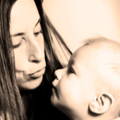Should You Have Kids? The ‘Parental Indecision Therapist’ Trend

Women these days aren’t just delaying having babies. They are debating having them at all. Whether or not to have a kid is perhaps the hardest choice of your life, obviously, because it’s an irreversible choice. Now many women are looking for help or guidance to help them ultimately figure out if they really want to have children, or they are having children because, well, that’s what we’re programmed to do. (I can hear the many mothers of women, who decide to be child-free by choice, screaming “What do you mean you’re not giving me a grandchild?!“)
If you Google Search, “Should I Have a Baby?” almost 4 million hits pop up. Obviously, there’s a need for someone to help women figure out this life-changing choice. The latest trend, when it comes to thinking of becoming a parent or even thinking of having a second, is seeing a specialized therapist to help you figure out the question, “Should I have a baby?”
Yes, welcome the trend of “Motherhood Clarity Mentors” and “Parental Indecision Therapists.” (Can you imagine? Got to run! Seeing my parental Indecision Therapist! I kid. I actually don’t think this is the worst idea in the world!)
Ann Davidman is a licensed therapist in California, who also calls herself, a “Motherhood Clarity Mentor.” Apparently, she’s in great demand. According to this article, “Deciding whether to have kids has never been more complex.” Indecisive women, apparently, are coming to Davidman in droves, in hopes of her helping them to have their own epiphany. “They arrive anxious for an answer. Or maybe, finally, a sense of peace. They arrive because they haven’t been able to resolve the biggest question of their lives: Do I want to be a parent?”
“Motherhood Clarity Mentors” or “Parental Indecision Therapists” may sound like another wacky “Holly-weird” trend. But, women nowadays, it seems, have never been so indecisive about having a baby. Even though I have two children, I sometimes do find myself wondering hypothetically, “If I were younger, had all the money and time in the world, would I have another baby today?” And, guess what? I’m totally on the fence, now that I know all that parenting entails and the world I’d be raising my children in.
Clients of Davidson are told to forget external factors – “Will my mom be disappointed if I don’t give her a grandchild?” “What kind of world will my kid grow up in?” “Will I regret if I don’t have a baby?” “Will I regret it if I do have a baby?” These questions, she says, get in the way of knowing what you really want.
Google search “Will I regret not having a baby?” and about 254,000,000 results pop up. That’s a shitload of people trying to figure out if motherhood is for them, or if it isn’t. I can see why women are confused. There are thousands of articles like, “10 women look back on living child-free by choice” to articles preaching the exact opposite, “10 things you’re definitely going to regret if you never have kids.” Deciding to have a child, or even a second child, has never been so daunting!
I don’t envy women torn over having a baby. I truly don’t. Some women know 100 percent they want a baby. Some know 100 percent they don’t. But there are a lot in the middle, it seems, who are really thinking about what their lives will look like, having children, or deciding not to.
A “Motherhood Clarity Mentor” or “A parental indecision therapist” (I’d love to have a business card with these titles on them! But I digress…) wants you to learn to listen to what your voice is telling you, not anyone else’s.
Merle Bombardieri has been a psychotherapist for more than 30 years, and often has a waiting list for her therapy workshop on parental indecision where, in the past, attendees were “deeply uneasy discussing their doubts.” Now, she says, people are willing to admit they’re not “certain about whether they want to have children.” Yet, many still aren’t willing to admit it publicly. And I get it.
Personally, even though I love my kids and can’t imagine my life without them, if any women said to me, “I don’t want to have kids,” Or, “I never felt the need to have kids,” Or, “I like my life the way it is,” I wouldn’t blink an eye. Of course, having a baby is life-changer, but that could be a good thing one day, and not so much the next.
In my opinion, women who choose to not have children are not a problem. The people who actually believe that women’s lives will be less rewarding, or less meaningful, or just plain less if they decide that they don’t want kids are the problem.
Much like when a friend tells you she’s getting a divorce, and you don’t know whether to say, “I’m sorry,” or “Congratulations!” I think many of us now can empathize and support other women who want to remain child-free. I give as hearty a “Congratulations” to those who announce they are pregnant as I do when I hear a woman say, “I don’t want to have kids.”
If someone told me they were 100 percent certain they are not going to have kids, I honestly don’t think they’ll regret it, and if they do, it will be fleeting. All of us have those ‘grass is always greener’ feelings at some point.
So do these “Motherhood Clarity Mentors” or “Parental Indecision Therapists” actually help? Well, one couple who went to Davidson’s class explained that Davidson told them to live in the ‘yes to a baby’ mentality for a week, and then ‘no to a baby,’ mentality for a week, while keeping a journal of pros and cons, and their feelings around that.
For Katie Wilson, keeping a journal was especially illuminating. She was told, “When you have a feeling of excitement about being a parent, write that down in one colour. And when you’re leaning toward, ‘This is a reason I don’t want to have kids,’ write that down in another colour.” After a while, she says, “I realized that I was, about 75 percent of the time, using the colour of the pen that symbolized not wanting to have a kid.” She chose to be child-free.
Davidman says a couple needs to understand what they want before they decide what they’re going to do. “It’s more about having clarity than choosing one path over another,” she says. “This process is not for the faint of heart, and it’s not simple. It requires people to possibly face some very uncomfortable feelings.”
Would you have gone to therapy to help you decide if you want a baby? (Or another?) My most pressing question is, “How do you correctly respond to someone who has decided to not have children?” Any therapists out there with suggestions?














